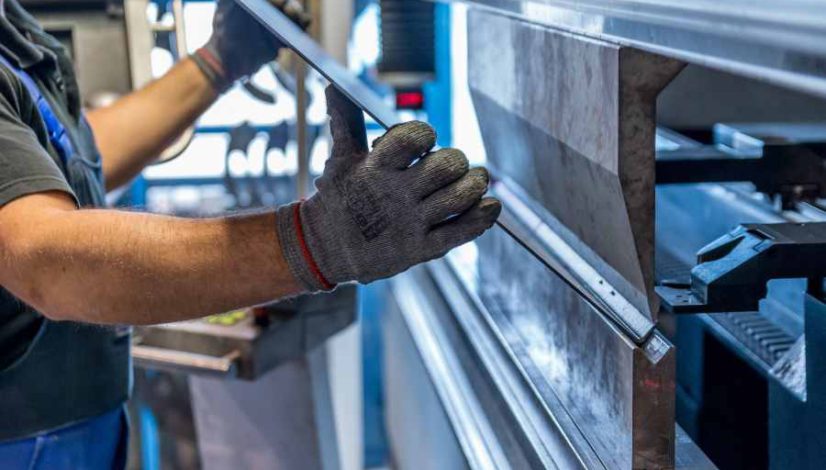Available Labor in the United States is Insufficient to Meet the Economy’s Demand
Rising wages and a shortage of affordable and available labor in the United States make Mexico and its workforce an attractive alternative.
Manufacturers, well as restaurants, retail stores and many other classes of businesses in the United States are being forced to raise the wages of their workers. This is being done in an urgent effort to attract more laborers back into the post COVID – 19 workforce and to be able to serve the growing flow of customers, as the worst of the pandemic seems to have passed. While there is a dearth of available labor in the United States for manufacturers to draw from, Mexico stands at the ready to meet companies’ demand for unskilled and skilled workers s in an economically competitive manner.
Chains like McDonald’s, Sheetz and Chipotle are just some of the latest companies to follow retail sector companies Amazon, Walmart and Costco and a wide array of manufacturing enterprises with pay increases, in some cases to $ 15 an hour or more for unskilled labor.
The raises are, of course, a boon for employees. Restaurants, bars, hotels and stores continue to be in the segment of the service sector economy where pay is lowest and many of its workers were at risk of contracting coronavirus at work in the last year while white-collar workers worked from home. US manufacturing workers, in many instances, also saw their companies temporarily shuttered to in order avoid the spread of the virus.
However, wage increases that are now being used to lure employees back to work could fuel inflation if manufacturing and other companies raise their prices to offset higher labor costs. Some businesses, however, could absorb costs or invest in automation. Other companies, given the shortage of available labor in the United States, may forego automation and take advantage of nearshore resources that are available in places like Mexico.
States and cities across the country are relaxing restrictions on businesses as COVID-19 case numbers and deaths drop. In places like Florida, Nevada and Texas, the flow of customers to restaurants is above or near pre-pandemic levels, according to OpenTable, which provides software for the industry.
Due to a lack of available labor in the United States, manufacturing and other industry wages in the US are rising
Many manufacturing and service sector companies have recently reported that they are struggling to find employees, and, that when they find them, they must offer pay increases.
“The demand for manufactured items is beginning to grow rapidly,” said Josh Bivens, director of research at the Economic Policy Institute. “By raising wages, they can get more workers.”
In April, despite overall hiring declines and shortage of available labor in the United States, the sector that includes restaurants, hotels, and entertainment venues hired more people than in the previous month. This is an indication that the pay increase offered by the majority of employers is paying off.
McDonald’s announced Thursday that it will increase pay for employees at the 650 company-owned restaurants to an average of $ 15 per hour by 2024. Workers just starting out will earn $ 11 per hour. The company called on its 14,000 franchise restaurants to take the same step.
Also Thursday, Amazon said it will pay $ 17 an hour, part of its effort to hire 75,000 workers. The internet giant said it is offering a $ 100 bonus for new hires who have already been vaccinated.
Sheetz, a chain of essentials stores on the Atlantic coast, said recently that it will give its 18,000 employees a raise of two dollars an hour and another dollar an hour in the summer. The rising cost of labor that has clearly affected the service sector of the economy will most surely be felt by businesses that make up the US manufacturing sector. Companies that wish to mitigate the effects of these rising costs can turn to Mexico as a more economical alternative.
Because of the lack of available labor in the United States and its effect on the cost of goods and services, consumer prices across the country increased 0.3% in April, much less than labor costs that same month. That indicates that many companies are accepting reduced profits rather than passing costs on to customers, Bivens said. Prices have risen 3.8% in the past year, above pre-pandemic levels.
Inflation may be on the horizon
Fears of rising inflation have dominated US financial markets after consumer prices rose 4.2% in April compared to a year ago, the biggest gain in 13 years, but that was mostly caused by a rise in prices. used car prices and airline tickets, not solely because of higher labor costs.
In a sign that companies are shifting jobs to hire workers, the number of jobs that now remain unfilled in the United States soared to 8.2 million at the end of March, but companies added only 266,000 workers in April, far fewer than the previous month. In this environment of a problem characterized by a lack of available labor in the United States, Mexico can provide a nearby solution.
Some unemployed are reluctant to return to work for fear of the coronavirus, while many women have left the workforce to care for their children, who continue to receive classes at home, via the internet. Due to the additional $ 300 unemployment payments, some unemployed are receiving more in benefits than in their previous jobs, and, as such, do not see the financial sense in returning back to work.

